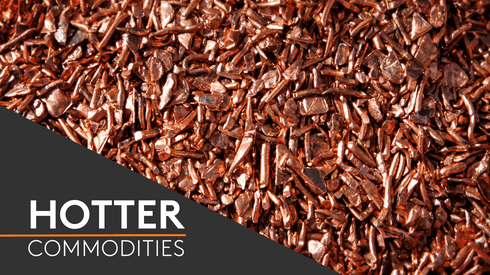The coming twelve months are likely to be relatively benign for base metals, according to Daniel Brebner, head of metals research at Deutsche Bank.
“There’s a lot of leverage and a lot of risk with respect to debt in Europe but I do think global monetary policy will adjust sufficiently to result in a reduction of perceived risk on the macro side over the near term,” Brebner told Metal Bulletin.
He was speaking as Deutsche Bank analysts received an award for being the second most accurate forecaster of base metal prices in 2011, which they called with 94.1% accuracy.
“We’re in an environment where the outlook for metals prices is relatively good. There are two metals that could outperform, and they will be nickel and copper.”
In the first quarter, according to Brebner, restocking will begin in stainless steel, leading to increased demand for nickel, and therefore a rise in prices.
“It will be driven by cyclicality and restocking, which will happen in the next three or four months, and that could allow for the outperformance,” he said.
“Copper also has strong underlying fundamentals, with constrained supply, and strong demand from the emerging world,” he added.
Aluminium is unlikely to gain enough strength to outperform other metals, Brebner said, while zinc prices could be on their way up, as Chinese demand increases.
“China is moving from being [an] export-orientated economy, to being domestic-consumption orientated, which will benefit zinc, as coated or galvanized steels will do very well,” he said.
“The zinc outperformance could take place in the latter part of 2012, and into 2013, however.”
In 2011, Deutsche Bank’s metals research team initially took a fairly positive view on base metals prices, but moderated it as risks built continuously toward the end of the year.
“That moderation helped us to perform better than we would have otherwise. We expected to see continued stimulus from the global monetary authorities, but that actually petered out. It came to an end with Operation Twist,” Brebner said.
“This resulted in greater weakness in the metals complex than we had anticipated at the beginning of 2011. The team, and [research analyst] Xiao Fu particularly, turned out to be correct in picking up that weakness.”
There were deflationary shocks for copper, Brebner added, and a perceived disruption in global growth, but the team was also successful in predicting the red metal’s resilience.
“For the copper market, towards the end of the third and fourth quarter last year, there was a lot of pressure among market participants expecting prices to move towards $6,000 per tonne,” Fu said.
“Our view was that copper would be relatively resilient, based on the power of Chinese restocking. That helped to support prices to a certain degree,” Fu added.
The team has also been successful at anticipating Chinese restocking and destocking, according to Brebner, which has been important in building perceptions in the market in relation to data on various metals.
“[This is true] particularly in copper, where apparent consumption can be very different from real consumption,” he said.
In Europe, meanwhile, where the debt crisis has had an “outsized” power over the market in 2011, according to Brebner, influence on base metals prices could be on the wane – and this may be a good thing.
“The role of Europe is to become less relevant. Over the last year, it’s been a key source of risk globally. On a twelve-month view, many of the perceived risks may be mitigated, and Europe could therefore be less important,” he said.
“What’s been a surprise is that we’ve seen some decent economic indicators coming out of the US. Manufacturing data is starting to normalise, and that’s helping to mitigate the risk perception from Europe,” Brebner added.
In terms of risk, meanwhile, the largest one directly influencing base metals is continuing cautiousness among investors, he told Metal Bulletin.
“There continues to be scepticism with respect to the global economy, and with respect to the ability of monetary authorities to patch up the systemic and structural issues,” Brebner said.
“We actually have a reasonably benign economic environment this year, but buyers of metal may misunderstand that, and remain cautious for too long.”
There has also been fear over a hard landing in China as its economic growth continues to slow, although Brebner believes this will be extremely unlikely.
“We have every reason to expect the Chinese government to step in, and support various segments of the economy to keep growth at a minimum level,” he said.
“The economy will continue to evolve towards being domestic driven, rather than export driven, and will remain metals intensive.”
Over the longer term, the fear of a Chinese hard landing could be justified, he said, but in the near term, it is not.
“We do acknowledge all the potential risks in the economy, but at the moment, we also take into account policy makers’ ability to keep things going,” Fu added.
Moreover, in the next twelve months, China’s influence on metals markets is only likely to grow, she said.
“We’re likely to see greater support in terms of commodities demand from China towards the second half of 2012,” Fu said.
There will be some deceleration in growth, Brebner conceded, but the country will still have an overall positive influence on prices.
“The hard landing risks perceived will diminish. There are certain segments of the economy, such as real estate, which are being addressed. The gap in prosperity is also being addressed,” he said.
“There is investment into the interior, and there are a number of inequalities that are being looked at, which could result in a bit of a rebound in metals consumption.”
Claire Hack
chack@metalbulletin.com
Twitter: @clairehack_mb




